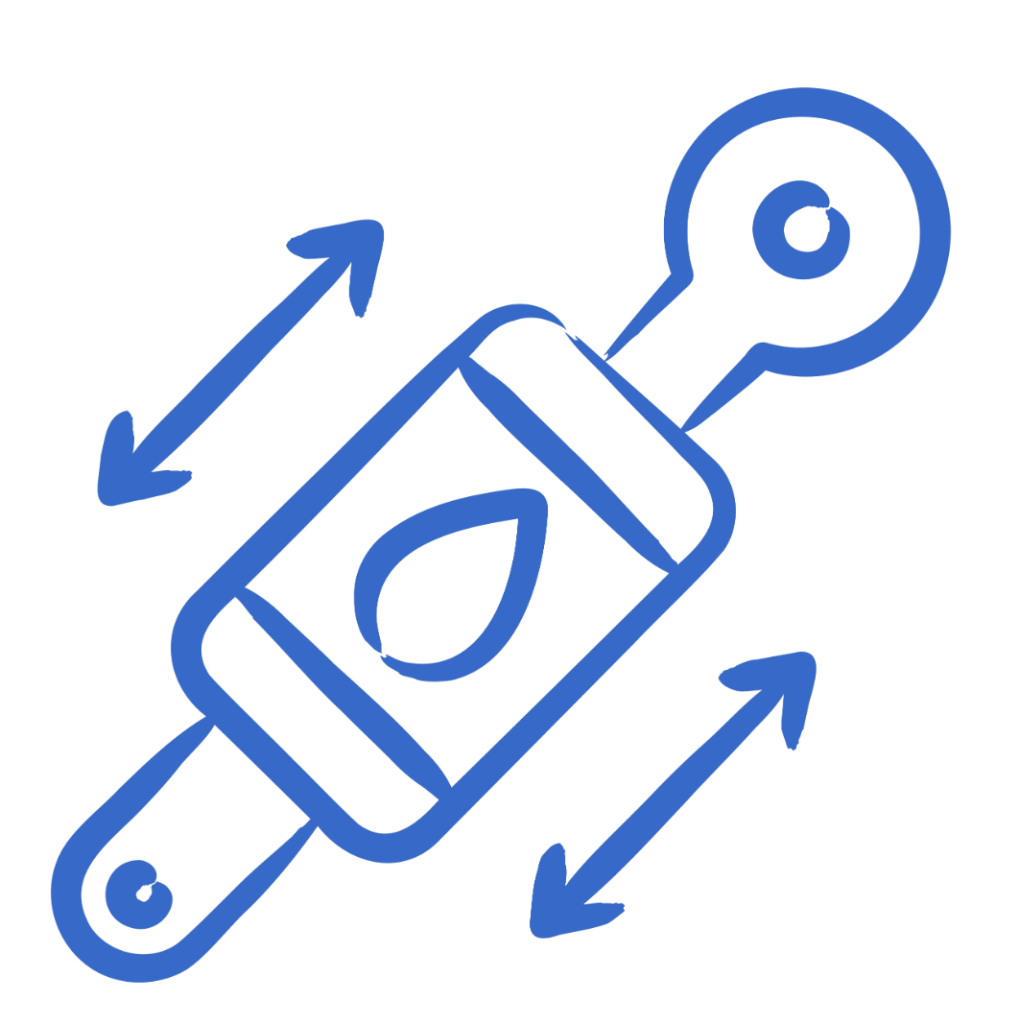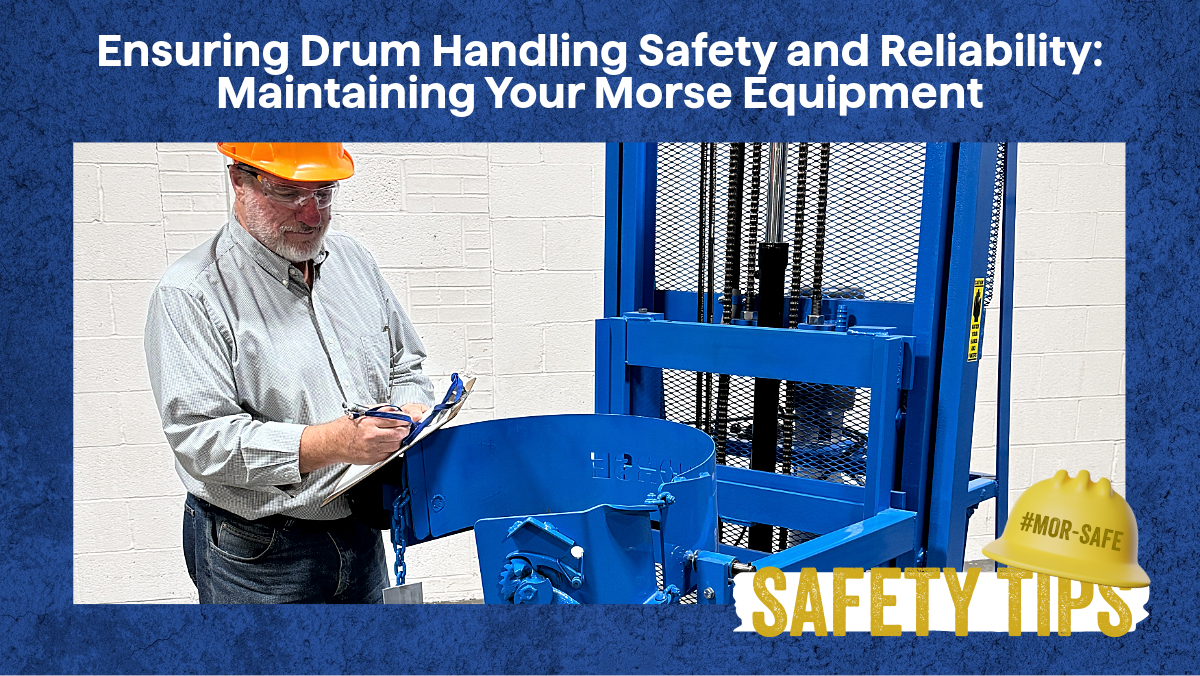Ensuring Drum Handling Safety and Reliability: Maintaining Your Morse Equipment
When it comes to handling heavy drums, drum handling safety and efficiency are paramount. At Morse Manufacturing, we design our drum handling equipment to meet the highest standards, but regular maintenance is essential to ensure your equipment continues operating at its best. Proper care not only extends the life of your equipment but also enhances drum handling safety, minimizes downtime, and prevents costly repairs.
This guide covers essential preventative maintenance tips that every operator should know to keep their Morse drum handling equipment in top condition.
Why Preventative Maintenance Matters

Preventative maintenance is a proactive approach to equipment care. By conducting regular checks and following recommended procedures, you can address issues before they become bigger problems. For heavy-duty equipment like drum handlers, this can mean the difference between seamless, safe operation and unexpected downtime or even injury.
Essential Maintenance Tips for Drum Handling Safety
Whether you’re using a hydraulic drum handler, a drum palletizer, or a manual drum truck, these maintenance steps cover the basics for most Morse models. Always refer to your specific operator’s manual for detailed instructions, as each piece of equipment may have unique maintenance requirements.
1. Perform Routine Inspections
A visual inspection is a simple but critical step in maintaining safe and efficient equipment. Periodically check for:
- Signs of wear or fatigue in all structural and mechanical components.
- Loosening of parts due to regular use. Tighten any loose components immediately.
- Wear on moving parts and drum contact areas (e.g., drum holder, tilt gears, and hinge pins).
If you spot any wear or damage, replace the affected components with genuine Morse parts to maintain drum handling safety and performance standards.
2. Keep Parts Properly Lubricated
Lubrication is essential to keep your equipment moving smoothly and to avoid undue stress on moving components. Ensure that you:
- Oil or grease wheel bearings, gears, sprockets, chains, the ratchet, and the pawl periodically.
- Clean and lubricate more frequently if operating in dusty or dirty environments where particles can clog or affect moving parts.
Proper lubrication prevents unnecessary friction, extending the life of your equipment and reducing the likelihood of malfunction.

3. Check the Hydraulic System (If Applicable)
For Morse models with hydraulic systems, regular inspections are essential:
- Inspect for oil drips, hose damage, and fluid condition at each scheduled maintenance interval.
- Maintain the hydraulic fluid level and replace the oil yearly, or sooner if you work in dirty or outdoor conditions where contamination is more likely.
We recommend using Noco Premium Plus automatic transmission fluid for most Morse drum handlers but always consult your manual for any specific fluid recommendations.
4. Clean and Inspect for Dust and Debris
In many industrial environments, dust and debris can accumulate on drum handling equipment, affecting its operation. Regularly:
- Clean all surfaces and inspect areas where dust and dirt may collect.
- Clear any blockages around moving parts, as particles can lead to jamming or unnecessary wear.
5. Replace Worn Parts with Genuine Morse Parts
One of the most important aspects of preventative maintenance is using high-quality replacement parts. Using genuine Morse parts ensures compatibility and durability, keeping your equipment safe and maintaining its efficiency.
Benefits of Preventative Maintenance for Drum Handling Safety
Regular maintenance is a small investment in time that yields significant returns. By following these simple steps, you:
- Enhance workplace safety by preventing equipment malfunctions that could lead to injury.
- Extend the lifespan of your drum handler, reducing overall ownership costs.
- Reduce downtime by addressing issues before they disrupt operations.
- Improve performance, ensuring that your equipment works as designed when you need it most.
Final Thoughts
Your Morse drum handling equipment is a key asset, and maintaining it is essential for both safety and operational efficiency. By following these maintenance tips and consulting your operator’s manual for model-specific instructions, you can keep your drum handler operating safely and effectively for years to come.
For more information on Morse products, genuine replacement parts, or to speak with an engineer, contact us today. At Morse Manufacturing, we’re committed to helping you keep your workplace safe and productive.



No responses yet